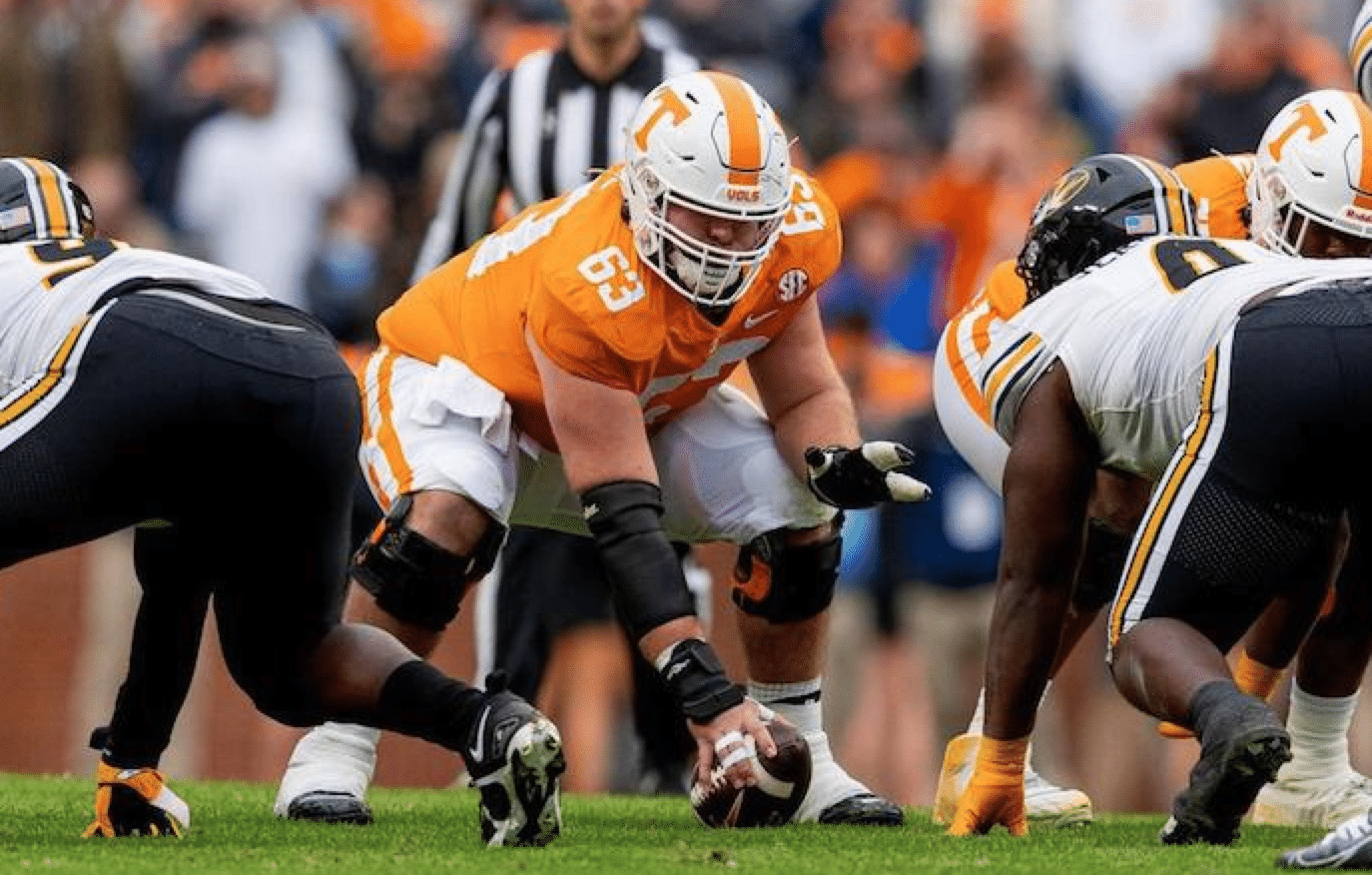The 2024 college football season is slowly approaching, and it brings with it some new changes to the game.
Overall, the sport is moving to a 12-team playoff and we all know about the addition of Oklahoma and Texas to the SEC. But what about changes that have the potential to affect an individual game? On this week’s Vol Report, we touched on these updates with Tennessee center Cooper Mays to get his thoughts on how the game as we know it will look a little different this fall.
One major modification being introduced this year is a two-minute stoppage at the end of the 2nd and 4th quarters. The NFL has had this rule in place since 1942 – originally instituted for the referees, as they were keeping the time – nowadays it allows for a break in the action, a slowdown of the pace as well as the opportunity to make substitutions.
So, what does Mays make of a two-minute warning? He’s not sure yet. “I don’t really know exactly how (the two-minutes) will affect us,” Mays said. “I know we’ll probably game plan a little bit for it. So, I’m sure we’ll play it a different way. But I don’t know. Usually, two minutes to go at the half or end of a game is a break that is usually much needed. Offense and defense probably so.”
On the other hand, the stoppage allows for timely player substitutions. Currently, if a defense wants to sub, they need the offense to do it first. A substituted defense can be tough on a worn-out offensive line, especially towards the end of the game. What does Mays feel about how this could change an outcome? “Me personally, if I feel like we’re on an equal playing field, I’m talking myself,” Mays said, “So if we’re both rested up, I think we’ll be okay. When it sucks is when you’re dead tired and they somehow sneak a sub in, and they get a whole new D-line that’s fresh and you’re just dog tired. That’s when it really is bad.”
Another big evolution in the college football game is the introduction of headset communication between players and coaches. Ideally, relaying information this way can help maintain the pacing of the game and allow for easier delivery of play changes. Obviously, it would be quite the commotion for all 11 players on the field to use this technology at the same time, but Mays sees the benefit of being able to listen in.
“I think it would be hard to do all 11,” Mays surmised. “I think that would be pretty chaotic. Maybe if you could some way, as a coach, tap into somebody for two seconds and be like, ‘Hey, watch out for this right here.’ That’d be pretty cool. But I think honestly, just having one (player) is way more of an advantage than we got right now.
“In third down situations where looks get pretty hairy, it probably would help people,” Mays continued. “As far as the centers who are calling the protections, I think that would be pretty big. On the every down situation, probably not as much.”
Only time will tell what impact these updates will have on the future of the game. A smartly-coached team like Tennessee will need their players to adapt and use these changes to their advantage. No doubt that the veteran Mays will lead the way.









